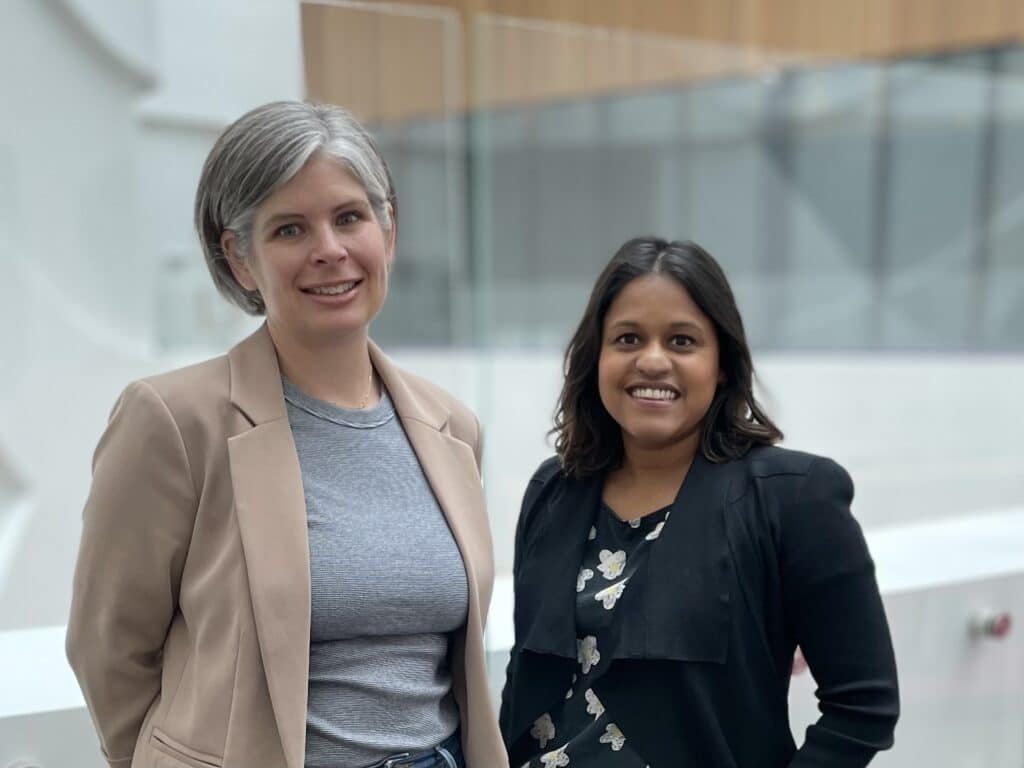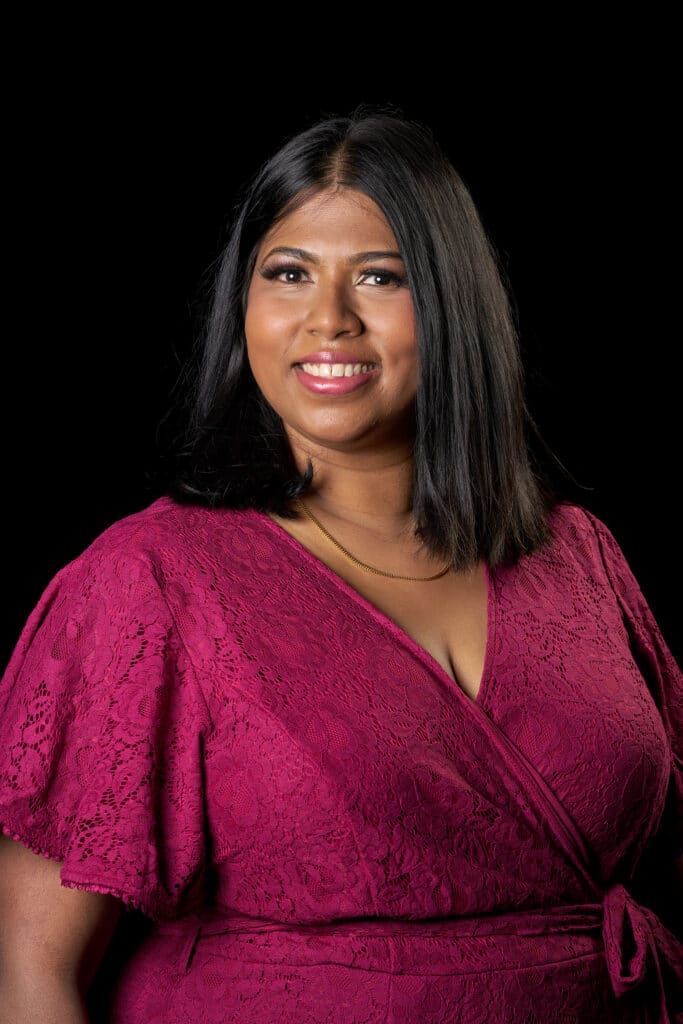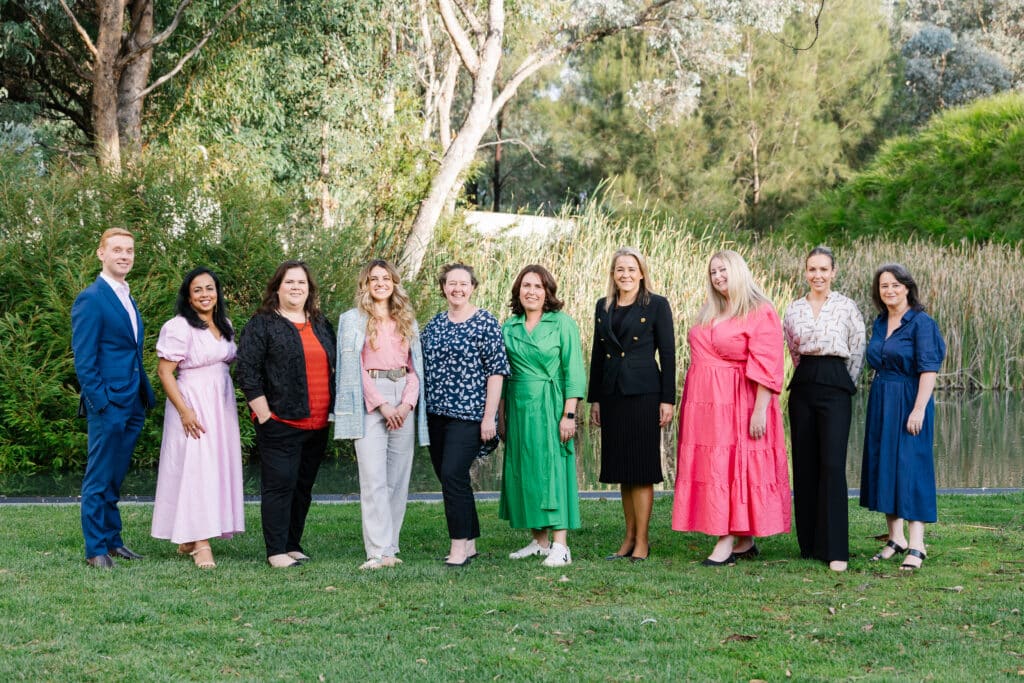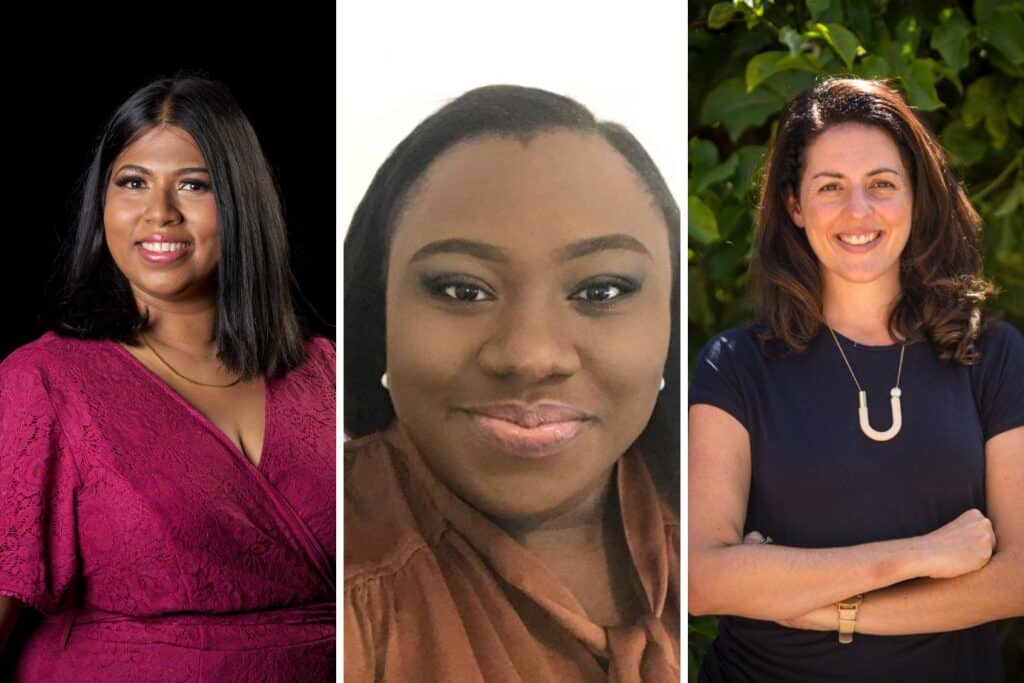Artificial intelligence, cyber safety, energy transition – these are terms we hear thrown around in conversations we have almost every day, especially those working in science, technology, engineering and mathematics (STEM) related industries.
Australia’s STEM workforce has grown so much in the last decade – by 68 per cent, according to the Diversity in STEM Review report published in February this year. It shows no signs of slowing down either, with the federal government aiming to create 1.2 million tech-related jobs by 2030.
Undoubtedly, the key to reaching that target is unlocking the potential in STEM-qualified women, particularly underrepresented women.
Yet no amount of funding so far has managed to reach the desired targets. And with the Women in STEM Ambassador Initiative coming to an end today, these funding gaps need government attention now more than ever.
The Diversity in STEM Review found that while women make up almost half (47 per cent) of Year 12 STEM enrolments, they still only represent 15 per cent of the STEM workforce.
It’s not that women are not getting qualified for STEM-related jobs, although there could always be more: women make up around 37 per cent of STEM enrolments at university, and just 17 per cent of VET STEM enrolments.
Rather, the problems lie elsewhere – and the government’s money doesn’t seem to be reaching them, particularly grass-roots organisations doing the heavy lifting to get women into the STEM workplace or retain them.
In last year’s federal budget, the Albanese government committed $38.2 million over eight years to support a “thriving, skilled and diverse” STEM workforce. Amounting to about $4 million per annum until 2031, the money is set to go to existing STEM programs focusing on women’s engagement in the workforce, especially First Nations women, culturally and linguistically diverse women and women from regional and rural areas.
We asked six grassroots organisations working in the space to champion diversity in STEM if this was enough. Here’s what they had to say.
WILD for STEM
Founded in 2018 by Dr Nadine Brew, Dr Lauren Giorgio and Dr Udani Reets, the Women in Leadership Development for STEM program (WILD) was born out of a shared experience the three co-founders faced as women in a male-dominated industry.
“We were in roles where we found it challenging to achieve promotions and have a clear development path,” Dr Nadine Brew told Women’s Agenda.
“So collectively we developed a program where we thought it would meet the needs of women in STEM to have exposure to mentors and connections to other women in STEM to enable their career ambitions.”

To support their program – which allows participants to attend the AICD Company Directors course, observe board meetings and attend a two-day retreat – WILD received the Women in STEM and Entrepreneurship (WISE) grant from the federal government in 2019.
Thanks to the grant, what began as a program based in Victoria turned into a nation-wide program. Almost 100 women have now completed WILD and gone on to progress their careers.
Within 12 months of completing the program, 45 per cent got a new role or promotion after the course, 34 per cent secured a board role, and 100 per cent stayed in the STEM industry.
Unfortunately, after three years of funding under the WISE grant, WILD were informed they would no longer receive funding from the government.
“As a country, we invest a lot of time and effort in supporting girls to take up the STEM subjects, and we support university students and women to succeed in their university careers,” Dr Udani Reets said.
“But what is the purpose of all that if we are not then creating a pathway and a pipeline for these women to become the top leaders in that career? We need to support them throughout the entire career trajectory, and that goes all the way up to the top.”
Dr Reets said the funding outlined in the budget was a good announcement, but she is interested to see how it will be distributed.
“We are hoping that the funding does reach those niches, particularly for women that experience intersection barriers, and that it addresses some of those pathways to diversity and ideally pathways to leadership and success in STEM careers,” Dr Reets said.
STEM Sisters
As the pioneering initiative in Australia for women of colour in STEM, STEM Sisters began in 2017 to tackle the challenges faced by women of colour in the industry and to date have empowered over 8000 women of colour in STEM. It was founded by Dr Ruwinga Fernando, who has a tech background and a PhD in artificial intelligence.
According to Chief Scientist Australia’s STEM Workforce Report, more than half (56 per cent) of university qualified women in STEM were born overseas, and 45 per cent of women in STEM with a university qualification speak a language other than English at home.
Yet prior to founding her organisation, Dr. Fernando discovered that there was not a single targeted initiative for women of colour in the industry, despite the fact that women born overseas face over four times the unemployment rate 14.1 per cent, compared to 3.3 per cent for Australian-born women.
“All women face a glass ceiling,” Dr Fernando said, “but anyone with an intersectional challenge – women of colour, women with a disability, LGBTQIA+ women or older women – what they face is not glass. It’s concrete.
“And you cannot use the same tool to break glass to break concrete.”

Dr Fernando and the team at STEM Sisters describe the gap as a “leaky pipeline” of STEM employment: there is a lack of role models, mentors and peer networks for women of colour to engage with, and compounded with bias and stereotypes, these women struggle to access and retain employment in the industry.
STEM Sisters are actively working to fix the leaky pipeline with several initiatives that the organisation offers, including events, Mentoring, Be You and Ambassador programs, Awareness of Opportunities, MAGNIFY: a digital magazine and more. The organisation was assisted by the WISE funding grant in 2022, to expand STEM Sisters across Victoria, NSW and SA. STEM Sisters seek continued funding to continue their impactful initiatives and expand to other states across Australia.
“I hope now with this budget they will announce the next WISE grant,” Dr Fernando said. “As identified in the Diversity in STEM report the grassroot initiatives are making the most impact and they should be funded and supported long term.”
iSTEM
STEM Sisters is not the only organisation that Dr Fernando founded: she, alongside Dr Morley Muse, runs iSTEM, a social enterprise organisation that connects women to STEM opportunities. The five key pillars of the organisation are education, employment, retention, leadership and entrepreneurship.
“Girls are being educated in STEM, but they are not transferring that education into actual roles,” Dr Muse said.
“And women should not just be employed, but they should stay employed. And then, we want women to grow from that entry point and get to the top.”

As Dr Muse said, if women aren’t getting the jobs, they should be making jobs. But it isn’t as easy as it sounds for women entrepreneurs.
“Women make up 22 per cent of STEM founders across Australia, but we’re only able to access 0.7 per cent of private equity funding. Not even one per cent,” Dr Muse said.
To combat the disadvantages women face in the industry, iSTEM has a range of services – including research, recruitment (direct pathway and a trial pathway for employers to try candidates for a 3-month no-obligation to recruit basis), employability workshops, mentoring retention programs, leadership programs, and hosting an annual Careers Fair, which attracts over 250 attendees – to connect women to opportunities.
And they do it all with zero funding from the government.
“The government should absolutely be supporting organisations like ours that are really doing the hard work,” Dr Muse said.
“We have literally put our careers on hold just to see this progress and we are yet to receive funding to amplify the work we are doing.”
Dr Muse said she intends to apply for the WISE grant should there be another opportunity to do so.
“The grassroots organisations should be the focus of the government – they are the ones working day and night to see that women have a voice.”
Franklin Women
After working in novel vaccine research and later in health policy, Dr Melina Georgousakis founded Franklin Women in 2014. Her grassroots social enterprise organisation aims to transform the current health and medical research ecosystem to allow women to thrive.
For almost a decade, Franklin Women was run by a small team and dozens of volunteers with no funding from the government.
“It was only in 2023 – after being around for eight years – that we received a two-year grant from NSW Health to invest in the systems and team to support our transition from my side-hustle to a sustainable social enterprise,” Dr Georgousakis said.
“Having this kind of investment is critical in grassroots organisations as it acknowledges that the activities and impact we deliver are unique to any individual workplace or piece of policy, rather we bring much of the top-down changes to life on the ground.”

Dr Georgousakis said funding should be directed to organisations that “have already gained strong momentum” rather than “starting from scratch”.
“But it is equally important to take some risks and invest in some new and innovative programs of work too in response to gaps in activity and emerging priorities,” she said.
There is not going to be one initiative, organisation, or piece of policy that is going to lead to a more diverse and inclusive STEM sector – we are completely reimagining how science has been done and so it requires investment at all levels and across a breadth of activities.”
While it is likely not enough, Dr Georgousakis said the government’s $38.2 million investment over eight years is “a very great start”.
“At the end of the day, STEM skills and broader STEM workforce is only going to become more important in the future as society relies on new technologies and science is embedded in jobs within all sectors,” she said.
“So getting this right now, is going to reap returns beyond what we can probably even imagine right now.”
AWSN
In 2015, Jacqui Loustau founded the Australian Women Security Network (AWSN) with a mission to increase the representation and participation of women in cybersecurity; according to statistics from RMIT, just 17 per cent of the cybersecurity workforce is made up of women.
“Government funding has played a crucial role in enabling AWSN to expand its initiatives and create a tangible impact in the cybersecurity landscape,” Loustau said.
“This financial backing has allowed AWSN to provide accessible services, and to sustain and grow our offerings and reach, contributing significantly to the uplifting and empowerment of women in different areas of cybersecurity.”

But there is a great need for continued investment in including women in the cybersecurity workforce. Currently, the government’s Cyber Security Skills Partnership Innovation Fund, which falls under the Cyber Security Strategy 2020, is supporting efforts to develop a skilled cybersecurity workforce.
However, Loustau said there is “still a long way to go” to include more women in that workforce.
“Continued Continued and increased funding from both public and private sectors is necessary to sustain and expand not only the efforts to bridge the gender gap but to build a coalition of women leaders in cyber security for the decades to come and inspire our young people to find a career in cyber security,” Loustau said.
“AWSN calls for ongoing support and investment in women in STEM, paving the way for a more equitable and innovative future. Together, we can empower the next generation of cybersecurity professionals and create a more secure digital landscape for all.”
Women in Information and Communication
Founded in 2000, Women in Information and Communication (WIC) is a volunteer-run, non-profit organisation on a mission to encourage all women to participate in ICT in Australia.
Offering a range of events, including an annual award ceremony, a work experience connection program and much more, WIC is working to remove the barriers that are stopping women from entering the ICT sector, providing women support for them to thrive in their careers.
WIC has never received any government funding, nor has it ever received the WISE grant – but that has not stopped their impressive advocacy work to get more women in the ICT industry.

“In order to achieve diversity and inclusion in the technology industry, it is clear that we need more young girls and gender diverse students studying ICT at schools and universities,” Women in ICT said.
“WIC welcomes the government’s commitment to ‘support a thriving, skilled and diverse STEM workforce’ and calls for continued funding in this space, particularly through programs and initiatives that engage young people like work experience.
“Addressing gender inequity and accessibility from the very start will contribute to better outcomes for all Australians, present and future.”


